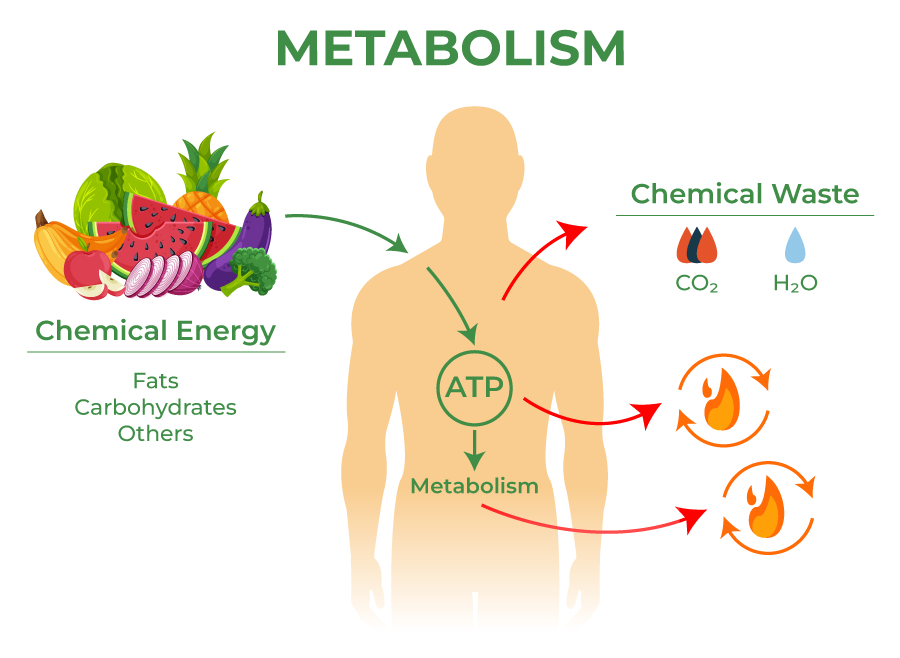In the pursuit of a healthier lifestyle and effective weight management, understanding and increase metabolism is key. Metabolism, the process by which your body converts calories into energy, plays a crucial role in determining your weight and overall well-being. In this comprehensive guide, we will explore evidence-based strategies to naturally boost your metabolism, providing you with the tools to enhance your health and achieve your fitness goals.
Factors Affecting Metabolism:
Before delving into the strategies to boost metabolism, it’s essential to grasp the factors that influence this intricate process. While some factors are beyond our control, such as age, genetics, and gender, there are modifiable risk factors that we can actively manage. These include lifestyle choices like smoking, alcohol use, physical activity, and diet.
How to Increase Metabolism Naturally
To naturally enhance your metabolism, consider making adjustments to your dietary choices, sleep patterns, and exercise routines. The following evidence-backed strategies can help you achieve a natural boost in metabolism.
Add More Protein to Your Diet:

High-protein diets, rich in meats, eggs, fish, and nuts, have been proven to increase metabolism and calorie burn. Protein requires more energy for digestion, resulting in a higher thermic effect compared to carbohydrates and fats.
Stay Hydrated – Drink More Water:
Water is not just essential for hydration; it also plays a role in metabolism. Studies suggest that drinking water can increase metabolic rate by up to 30%, thanks to water-induced thermogenesis. Aim to stay consistently hydrated throughout the day for optimal results.
Embrace High-Intensity Workouts:

Incorporating high-intensity workouts, such as High-Intensity Interval Training (HIIT), can lead to a more prolonged rise in resting metabolic rate compared to lower-intensity exercises. HIIT engages the body in intense periods of aerobic exercise, followed by periods of lower-intensity work.
Lift Weights – Strength Training Matters:
Building muscle through strength training positively influences metabolism. Studies have shown that regular strength training increases resting metabolic rate, contributing to burning more calories even at rest.
Sip on Oolong or Green Tea:
Enjoy the combined benefits of caffeine and catechins found in green and oolong tea. While the evidence is mixed, some research suggests that these compounds may increase metabolic function, making them a refreshing addition to your routine.
Spice Up Your Meals to Increase Metabolism:

Introduce spicy foods into your diet to benefit from capsaicin, a compound found in chili peppers. Research indicates that capsaicin may improve signs of metabolic disease and aid in managing obesity, offering a flavorful boost to your resting metabolic rate.
Prioritize Quality Sleep:
Ensure you get sufficient, quality sleep, as it is linked to improved metabolism. While the direct impact of sleep on metabolism is debated, sleep deprivation raises the risk of weight gain, obesity, and diabetes, all of which can affect metabolism.
Enjoy Your Cup of Coffee:
For coffee enthusiasts, here’s another reason to savor your cup of joe. Caffeine, found in coffee and other beverages, has been associated with a short-term rise in metabolic rate. Moderation is key, and this pick-me-up might just be the boost you need.
Snack Smart – Fuel Your Metabolism:
Snacking regularly throughout the day can keep your metabolism active by providing a continuous source of energy for digestion. Opt for nutrient-dense snacks like nuts, fresh fruit, and vegetables for a healthier metabolism.
Focus on Standing More:
Combat a sedentary lifestyle by incorporating breaks to stand or walk. Research suggests that even short breaks every 30 minutes can boost metabolic health, especially in older adults.
Avoid Crash Diets:
Steer clear of crash diets promising increase metabolism quickly. Instead, focus on a balanced diet that provides sufficient calories and essential nutrients. Crash diets often result in nutrient deficiencies and are not sustainable in the long run.
Reduce Stress Levels:

Manage stress effectively, as chronic stress can lead to the release of cortisol, a stress hormone that slows metabolic rate. Practices like mindfulness, meditation, and regular exercise can contribute to stress reduction.
Incorporating these evidence-based strategies into your lifestyle can pave the way for a naturally boosted metabolism. Remember, there’s no one-size-fits-all approach, and gradual, sustainable changes are key to long-term success. By understanding the factors influencing metabolism and making informed choices, you can unlock the potential for a healthier, more energetic life. Embrace these strategies, listen to your body, and embark on a journey to revitalize your metabolism and overall well-being.


